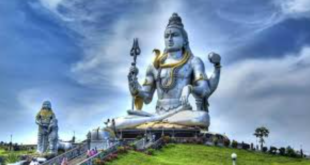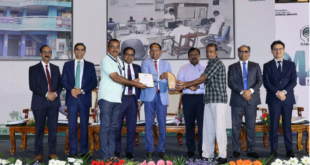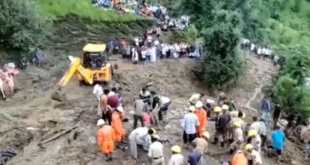Richesh Dutt
 With second phase of lockdown underway, I can’t help but wonder how the past 8 months for the Kashmiris under security lockdown since August 5th, 2019 have been. And yet again when things appeared to be smoothing up, the valley registered its first corona case on March 18th, andhence a general lockdown is continuing like the rest of India.
With second phase of lockdown underway, I can’t help but wonder how the past 8 months for the Kashmiris under security lockdown since August 5th, 2019 have been. And yet again when things appeared to be smoothing up, the valley registered its first corona case on March 18th, andhence a general lockdown is continuing like the rest of India.
But with the state of infrastructure and facilities in Valley, with high speed internet ban, Is Kashmir really on par with rest of India in coping up with Corona?
Ban on high speed internet in valley:
Imagine being isolated in any part of country but still being able to contact family or attend to businesses using video conferencing or learning new skills from net to kill boredom. The same isn’t true for Kashmiris. With the ban on 3G and 4G services it is becoming arduousconducting business in face of lockdown
We may even disregard these as trivial issues, but in the era of disseminating public information digitally and specifically in case of corona where new information is being processed each day regarding diagnosis and testing, the prolonged ban on high speed internet is compounding woes of health care workers.

Iqbal Saleem, a professor of Surgery at Government Medical College Srinagar, in the initial days of Corona spread sensed the looming danger and asked his friend, a surgeon in United Kingdom asking about his country’s response to Pandemic, who sent him a detailed protocol adopted by hospitals in Kent as a WhatsApp file. But downloading the file was in itself a herculean task in Kashmir and after repeated unsuccessful attempts he lashed out his frustration on twitter “ This is so frustrating…Trying to download the guidelines for intensive care management as proposed by docs in England…24 mbs and 1 hour….still not able to do so” Saleem wrote.
“There is growing anxiety around pandemic, and unwarranted restrictions on content and dissemination of information only stands to add to the panic” Amnesty International India said last month.
Sorry state of health infrastructure A march 2018 health report (http://jkhealth.org/new2017/pdf/Manpower%20Audit%20Report_22-03-2018_Updated.pdf) states that:
While the private sector accounts for 72% of healthcare services in rural areas and about 79% in urban areas in the country, in Jammu and Kashmir, nearly 97% of the healthcare needs of the 14.3 million population of the state are met by public health institutions.
The doctor to patient ratio in the state is amongst the lowest in India. “Compared to the doctor-patient ration of 1:2000 in India, J&K has one allopathic doctor for 3,866 people against WHO (world Health Organization) norm of 01 doctor for 1,000 population,” the report says.

A cauldron of resentments:
Eight months of sustained lockdown has left most sections of Kashmiri society crushed economically and otherwise. Even before onset of Corona, apple orchids did some business but other sources of income like handicrafts industry, Papier-mâché industry, carpet industry and tourism minimalized. It’s spring season in Kashmir which sees heightened arm activity and with prolonged curfews and no source of income, and Islamic state of Iraq taking responsibility of “Kabul Gurudwara” attack as “revenge of Kashmir”, there is fear of resentment and reinforcement to radicalization of Kashmiri youths. To substantiate this is the fact that few of the militants who killed paramilitary commandos in Kupwara in early April were youths from south Kashmir.
Mental Health challenges:
Being a conflict torn region, Kashmir has reported widespread prevalence of mental issues in recent years. A 2015 survey by humanitarian organization Medicines Sans Frontiers estimated nearly 45% of Kashmir population showed symptom of mental distress. It found out 41% of population showed signs of depression, 26% showed signs of anxiety and 19% showed probable symptoms of PTSD(Post-traumatic stress disorder)
The state just started recovering from the losses in trade and education post recent shud down and COVID-19 crisis could prove to be a huge burden on the mental health of people already anxious over lack of proper healthcare as well as poor awareness of disease
Woes of Students:
Only a couple months of schooling after security lockdown, and again educational institutes are forced to shut down. Teenage being the most crucial stage to learn skills and knowledge, the future of Kashmir is forces to stay indoors. While some schools are offering online classes most students can’t access them due to slow internet (ban of high speed net).
“A video lesson normally takes up to an hour to download. You can imagine the severity of the situation. A single video does not cover the whole lecture,” Zahoor complained, adding that she is worried about her university exams next year.
“These students have seen too much: a prolonged lockdown in 2019 and now the pandemic. When they finally started to feel better, COVID-19 happened. It is taking a toll on their mental health,” a Kashmiri teacher tweeted.
Resilience to curfews and lockdowns:
Yet there are few fronts, where Kashmir is ahead in tackling Covid-19 than rest of india.
Unlike rest of India, Kashmir has seen weeks of lockdown every year and people have found out own ways of navigating them. Same is true for police and security forces in valley who have mastered the art of locking down an entire population-including tactics of imposing barricades at choke points, knowledge of trouble spots within an area and finding out means for supply of essential goods and services.
It would be very unrealistic to expect the same from people of other states or security forces who have never experienced anything like this. Perhaps that’s why we are getting reports of police raining batons on violators of curfews. In short run, brute force may help to keep people in home but with increasing corona cases and fears of prolonged shutdown, with anxiety and stress; it’s going to be very difficult to control people’s emotion unless we use experience and lessons learnt from Kashmir crisis. This lockdown shouldn’t become a collective punishment for 1.3 billion people of India.
Politics at halt
Another positive is the leash on large gatherings and anti-India rallies as used to happen. Ever since the release of National Conference leaders, Farooq Abdullah and Omar Abdullah none of them have spoken against Centre or its decision to abrogate Article 370 leading to speculations that either some understanding is reached prior to their release or its corona effectof scaring away crowd.
Corona crisis has certainly changed the dynamics of politics somewhat, providing government with breathing space to formulate strategies and norms for conducting panchayati elections taking in account the last one being a disaster with all mainstream parties boycotting it leading to 12000 posts being left vacant as per The Hindu reports.
Road Ahead
In light of above facts, it would be prudent to treat Kashmir the same way as rest of India. It should be given priority in formulating policies or sanctioning grants. Meanwhile, relaxing security norms without compromising national security should also be on top of the list. Creating short term jobs for people stuck unemployed due to lockdown and finding domestic market for their small enterprises may help them to sustain in longer run.
All in all, while abrogating the article 370, we promised Kashmiris that this was for their greater good, and time has come to show them the same.
(Author is Hyderabad based IT professional)
 Jubilee Post News & Views
Jubilee Post News & Views





